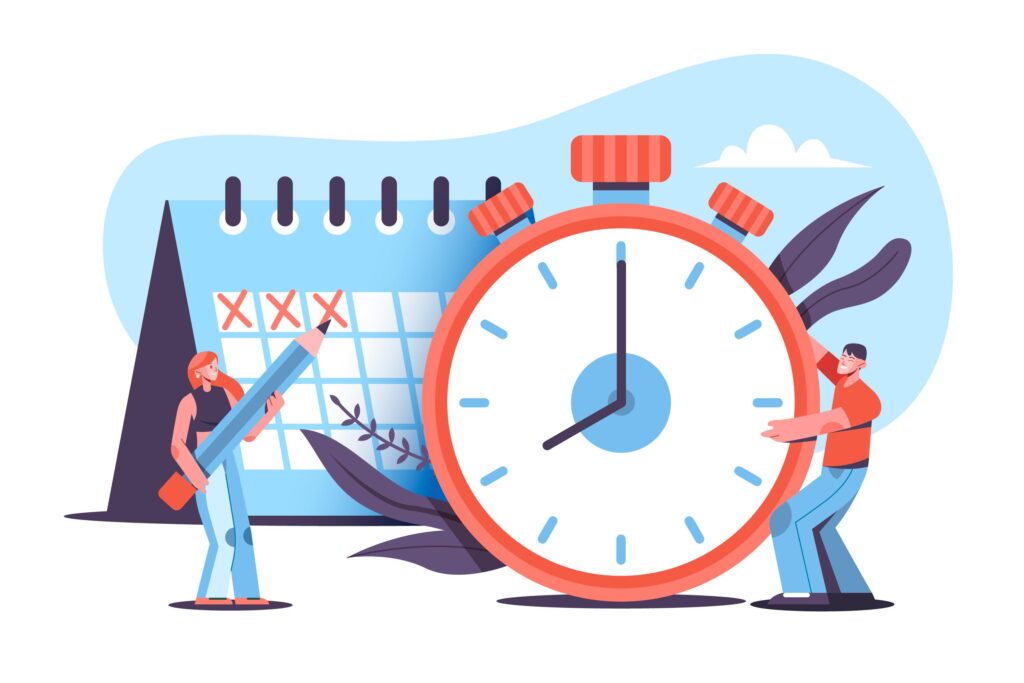Last updated on December 20th, 2024 at 02:07 pm
Lateness is a common issue that many people face, and it can be easy to judge or criticize someone for being consistently late. However, it’s important to recognize that there may be underlying reasons for their tardiness, and dating someone who is frequently late can provide opportunities for patience, understanding, and compassion.
Moreover, it can be an opportunity to assist your partner in improving their punctuality and addressing any underlying issues. Here’s why you should consider dating someone who is always late and how to help them get on time.
The common stigma surrounding lateness and the importance of understanding the reasons behind it
Lateness is frequently perceived as a negative trait, and individuals who are habitually late may face judgment or criticism. However, it is essential to recognize that there may be underlying reasons for lateness, and passing judgment or criticizing someone may not be constructive or beneficial.
The Potential Benefits of Dating Someone Who Is Consistently Late
Dating someone who is frequently late can provide opportunities for patience, understanding, and compassion. It can also serve as a chance to assist your partner in improving their punctuality and addressing any underlying issues, fostering growth and personal development within the relationship.
The Reasons Behind Lateness
There are various reasons why someone may consistently be late, including disorganization, overscheduling, and challenges with time management. Here are some common causes of lateness:
Lack of Organization
Individuals who are frequently late may have difficulty with organization and planning. They might struggle to keep track of their appointments and commitments, resulting in last-minute rushing and tardiness.
Overscheduling
Individuals with busy schedules may struggle to manage all of their commitments, resulting in tardiness.
Challenges in Time Management

Some individuals may struggle to accurately estimate the time required to complete tasks or reach appointments, resulting in tardiness.
Additionally, there may be underlying issues, such as anxiety or low self-esteem, that contribute to lateness. It is important to consider the possible reasons behind someone’s tardiness and to address the issue with empathy and understanding.
The Potential Benefits of Dating Someone Who is Consistently Late
While lateness can be frustrating, dating someone who is consistently late can provide several benefits. These may include opportunities for patience, understanding, and compassion, the chance to assist your partner in improving their punctuality, and the potential for growth and personal development within the relationship.
Opportunities for Patience, Understanding, and Compassion
Dating someone who is frequently late can demand patience and understanding, as their tardiness may not always be intentional or within their control. By addressing the issue with empathy and compassion, you can help your partner tackle their lateness and any underlying concerns.
The opportunity to assist your partner in enhancing their punctuality
If your partner is frequently late, it can be an opportunity to collaborate on improving their punctuality. By providing support and encouragement, you can assist your partner in tackling any organizational or time management issues and discovering strategies to enhance their punctuality.
The Potential for Growth and Personal Development in the Relationship
Collaborating to tackle and enhance punctuality can foster growth and personal development within the relationship. By encouraging one another and discovering ways to overcome challenges, couples can reinforce their connection and create a stronger, more satisfying partnership.
How to Help Your Partner Be On Time
If you’re dating someone who is frequently late, there are several strategies you can employ to encourage them to be more punctual. Here are some tips:
Set Reminders
Assist your partner in staying organized by setting reminders for appointments and commitments. This may involve using a calendar or scheduling app, setting alarms on their phone, or placing physical reminders around the house.
Create a Schedule
Encourage your partner to establish a schedule and plan their day. This can help them stay organized and manage their time more effectively, resulting in improved punctuality.
Seek Professional Help
If your partner’s lateness stems from deeper issues, such as anxiety or low self-esteem, it may be beneficial to seek the help of a professional therapist or counselor. A professional can assist your partner in addressing these issues and developing strategies to enhance their punctuality.
Engage in open and honest communication

Open and honest communication is essential in any relationship, and it becomes particularly important when addressing and improving lateness. Encourage your partner to share their challenges openly and to express their needs and concerns.
Be patient, understanding, and compassionate
As with any relationship issue, it is essential to approach the matter of lateness with patience, understanding, and compassion. Be supportive and encouraging, and acknowledge that enhancing punctuality may require time and effort.
Conclusion
In conclusion, dating someone who is consistently late can be a rewarding and enriching experience. By addressing the issue with patience, understanding, and compassion, couples can collaborate to enhance punctuality and tackle any underlying problems.
Whether through open and honest communication, setting reminders, creating a schedule, or seeking professional assistance, there are numerous ways to support your partner in improving their punctuality. It’s essential to remember that lateness can stem from various factors, and by understanding the reasons behind it and approaching the issue with empathy, couples can work together to enhance punctuality and build a stronger, more fulfilling relationship.


